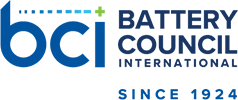
Sustainable Lead Batteries are Essential to Transportation, Communications, Telecommunications and More
WASHINGTON, February 18 – On National Battery Day, we celebrate the contributions of the reliable and proven lead battery, a unique North American manufacturing and recycling industry which has been an important energy source for more than a century. Batteries remain at the forefront of energy and policy discussions on Capitol Hill, the White House and the Department of Energy and all agree that batteries are essential to the nation’s ability to transition to a greener future.
As society moves to more electrification, lead batteries are recognized as the most sustainable battery technology with a recycling rate of 99 percent. The recycled materials used to make new batteries, a perfect example of a circular economy. A typical new lead battery is comprised of at least 80% recycled material. This closed-loop system has built a solid U.S. manufacturing footprint, with 90 percent of domestic lead battery demand met by North American manufacturers.
“The need for increased, reliable domestic battery manufacturing will be met by a range of battery chemistries, with domestic manufacturers leading the way. Each chemistry’s individual attributes will determine which battery technology is used for a wide variety of applications,” said Roger Miksad, executive vice president of BCI.
“National Battery Day is an occasion to honor the work of Battery Council International member companies whose products demonstrate how critical batteries are to society,” noted Miksad who heighted several key applications where lead batteries are the battery of choice:
- Transportation: In the U.S., Americans rely on 275 million cars and trucks to take us where we want to go for work and play. Each vehicle is powered by a lead battery, and nearly every electric vehicle has one, too.
- Telecommunications: Lead batteries provide 88% of the backup power required for 24/7 service.
- Motive power: 89% of motive power battery demand in applications such as forklifts, is met by lead batteries.
- Backup power: Lead batteries’ reliability, cost and safety make them the dominant choice for the uninterruptable power source market, meeting 90% of demand.
Miksad added that last fall, BCI and the Essential Energy Everyday communications initiative launched a series of on-demand webinars to further inform policymakers on key topics such as critical minerals and supply chains, and the role of batteries for electric and autonomous vehicles.
Essential Energy Everyday exists to increase awareness of the critical importance of lead batteries in powering our daily lives. It encourages continued investment in sustainable lead battery technology to store and provide energy on demand. The initiative is supported by the global trade association that represents the lead battery and recycling industries, Battery Council International.
Battery Council International is the North American trade association representing the lead-based battery manufacturing, supply, recycling and distribution companies. For more information, visit www.batterycouncil.org.


